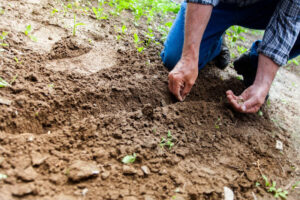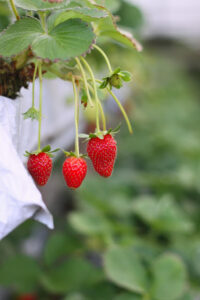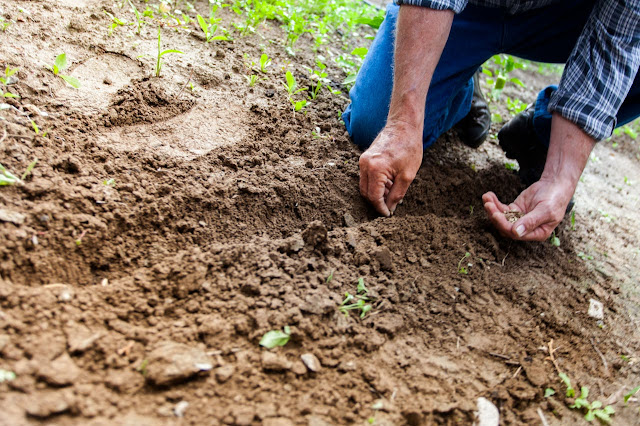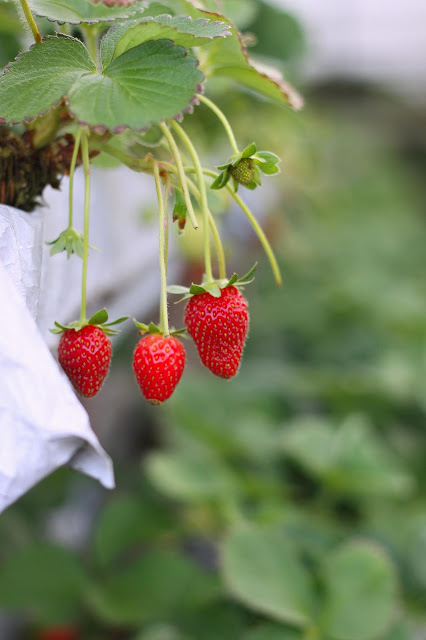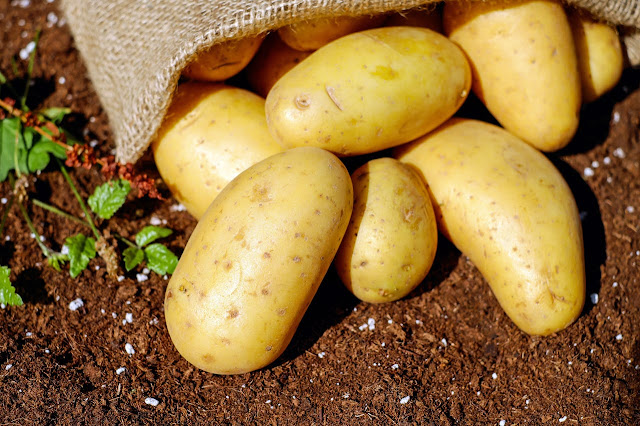Gardening enthusiasts and horticulturists alike have long recognized the importance of mulching in fostering a thriving garden. Mulching is not merely a cosmetic addition to your garden; it plays a pivotal role in creating a conducive environment for plant growth and overall garden health.
Outline:
- Introduction
- Brief explanation of mulching
- Importance of maintaining a healthy garden
- Benefits of Mulching
- Retaining soil moisture
- Weed suppression
- Temperature regulation
- Types of Mulch
- Organic mulch
- Inorganic mulch
- Choosing the Right Mulch
- Consideration of plant needs
- Climate and soil type
- Mulching Techniques
- Proper mulch depth
- Mulching around plants
- When to Mulch
- Best times for mulching
- Seasonal considerations
- Common Mulching Mistakes
- Over-mulching
- Incorrect mulch placement
- Mulching for Different Plants
- Trees and shrubs
- Flower beds
- Vegetable gardens
- Impact on Soil Health
- Nutrient enrichment
- Prevention of soil erosion
- Mulching as a Pest Control Method
- Natural deterrents
- Protection against certain pests
- Sustainability of Mulching
- Eco-friendly mulch options
- Recycling organic materials
- DIY Mulching Tips
- Creating homemade mulch
- Cost-effective mulching solutions
- Mulching and Water Conservation
- Reduced water usage
- Environmental benefits
- Success Stories
- Real-life examples of successful mulching practices
- Testimonials from experienced gardeners
- Conclusion
- Summarize the key points
- Emphasize the importance of mulching in garden maintenance
Benefits of Mulching
Retaining Soil Moisture
One of the primary benefits of mulching is its ability to retain soil moisture. A layer of mulch acts as a protective barrier, preventing water evaporation from the soil. This is particularly crucial in arid regions or during periods of drought when water conservation is paramount.
Weed Suppression
Mulching serves as a natural weed suppressant. By preventing sunlight from reaching the soil surface, mulch inhibits the germination and growth of weeds. This not only saves time and effort in weeding but also ensures that your plants have access to essential nutrients without competition.
Temperature Regulation
Mulch acts as a thermal insulator, regulating soil temperature. In extreme weather conditions, whether hot or cold, mulch provides a buffer, shielding plant roots from temperature extremes. This is especially beneficial for plants that are sensitive to abrupt temperature changes.
Types of Mulch
When it comes to mulching, there are two main types to consider: organic mulch and inorganic mulch.
Organic Mulch
Derived from natural materials such as wood chips, straw, or compost, organic mulch decomposes over time, enriching the soil with valuable nutrients. It is an excellent choice for gardeners looking to enhance soil fertility.
Inorganic Mulch
Inorganic mulch, such as gravel or rubber mulch, doesn’t decompose like its organic counterpart. While it doesn’t contribute to soil fertility, it offers long-lasting weed control and is suitable for areas where a more permanent solution is desired.
Choosing the Right Mulch
Selecting the appropriate mulch involves considering various factors, including the specific needs of your plants, the local climate, and the soil type in your garden.
Consideration of Plant Needs
Different plants have different requirements. Some thrive in well-drained soil, while others prefer moisture-retaining conditions. Tailor your choice of mulch to meet the specific needs of the plants in your garden.
Climate and Soil Type
Consider the climate in your region and the type of soil you have. Certain mulches perform better in specific conditions. For instance, in a hot and dry climate, organic mulches with moisture-retaining properties may be more beneficial.
Mulching Techniques
Proper mulching involves understanding the depth requirements and the correct application around plants.
Proper Mulch Depth
Maintaining an optimal mulch depth is crucial. Too little mulch may not provide the desired benefits, while excessive mulch can lead to problems such as root rot. Strive for a consistent and appropriate depth in your mulch application.
Mulching Around Plants
Avoid piling mulch directly against the stems of plants, as this can create a haven for pests and diseases. Leave a small gap around the base of each plant to allow for proper air circulation.
When to Mulch
Knowing the best times for mulching is essential for reaping the maximum benefits.
Best Times for Mulching
Mulching in the spring helps conserve soil moisture during the hotter months, while fall mulching prepares plants for the winter by insulating the soil against cold temperatures.
Seasonal Considerations
Consider the specific needs of your garden during each season. For instance, summer mulching may focus on water retention, while winter mulching emphasizes temperature regulation.
Common Mulching Mistakes
Despite its apparent simplicity, mulching can go awry if not done correctly. Be mindful of common mistakes to ensure optimal results.
Over-Mulching
While mulch is beneficial, too much of a good thing can be detrimental. Over-mulching can lead to oxygen deprivation for plant roots and create an environment conducive to pests and diseases.
Incorrect Mulch Placement
Improper placement of mulch, such as piling it against the trunk of a tree or the stems of plants, can lead to issues like rot and infestations. Take care to apply mulch evenly and at a safe distance from plant bases.
Mulching for Different Plants
Different types of plants have unique requirements when it comes to mulching.
Trees and Shrubs
For trees and shrubs, extend the mulch layer to the drip line. This encourages root development and protects against competing grass and weeds.
Flower Beds
In flower beds, a consistent layer of mulch helps retain moisture and provides a neat appearance. Be mindful of the specific needs of the flowers in your beds.
Vegetable Gardens
Vegetable gardens benefit from mulching as well. Mulch helps regulate soil temperature, suppress weeds, and maintain consistent moisture levels, creating an ideal environment for vegetable crops.
Impact on Soil Health
The positive impact of mulching extends beyond moisture retention and weed suppression; it also contributes to overall soil health.
Nutrient Enrichment
Organic mulches, as they decompose, release valuable nutrients into the soil. This natural fertilization promotes healthy plant growth and vitality.
Prevention of Soil Erosion
Mulch serves as a protective layer against soil erosion caused by wind and water. This is particularly important in areas prone to heavy rainfall or strong winds.
Mulching as a Pest Control Method
Believe it or not, mulching can play
a role in pest control.
Natural Deterrents
Certain types of mulch, such as cedar or cypress, contain natural oils that act as insect repellents. Choosing the right mulch can help deter pests and protect your garden.
Protection Against Certain Pests
In addition to repelling pests, mulch can create a physical barrier that prevents certain soil-dwelling pests from reaching plant roots.
Sustainability of Mulching
In an era where sustainable practices are a priority, it’s essential to explore eco-friendly mulch options.
Eco-Friendly Mulch Options
Materials like shredded bark, straw, or recycled rubber offer environmentally conscious alternatives to traditional mulches. These options provide the same benefits while minimizing environmental impact.
Recycling Organic Materials
Consider creating your own mulch by recycling organic materials from your garden or kitchen. This not only reduces waste but also provides a sustainable source of mulching material.
DIY Mulching Tips
For those who enjoy a hands-on approach to gardening, there are several do-it-yourself mulching tips to explore.
Creating Homemade Mulch
Explore creative ways to make your own mulch, such as using shredded newspaper, leaves, or even coffee grounds. Homemade mulch can be a cost-effective and personalized solution.
Cost-Effective Mulching Solutions
Mulching doesn’t have to break the bank. Look for local resources, such as municipal composting programs or tree-trimming services, to obtain cost-effective mulching materials.
Mulching and Water Conservation
Water conservation is a critical consideration for environmentally conscious gardeners.
Reduced Water Usage
Mulching significantly reduces water evaporation from the soil, allowing you to water less frequently. This not only conserves water but also contributes to the sustainability of your garden.
Environmental Benefits
By using less water and adopting eco-friendly mulch options, you contribute to the overall health of the environment. It’s a small but impactful step towards a greener and more sustainable future.
Success Stories
Real-life success stories serve as inspiration and practical examples of effective mulching practices.
Real-Life Examples
Share anecdotes of gardeners who have achieved remarkable results through strategic mulching. These stories provide motivation and valuable insights for readers looking to enhance their own gardening practices.
Testimonials from Experienced Gardeners
Include testimonials from experienced gardeners who swear by the benefits of mulching. Hearing from those who have walked the path before adds credibility and reassurance to the effectiveness of mulching.
Conclusion
In conclusion, the role of mulching in maintaining a healthy garden cannot be overstated. From retaining soil moisture to acting as a natural pest deterrent, mulching offers a myriad of benefits for gardeners of all levels. By understanding the different types of mulch, proper application techniques, and the specific needs of various plants, you can harness the power of mulching to create a lush and vibrant garden.
Get Access Now: https://bit.ly/J_Umma
FAQs
- Is mulching suitable for all types of plants?
- Mulching can benefit a wide range of plants, but it’s essential to consider the specific needs of each species.
- How often should I replenish the mulch in my garden?
- Mulch should be replenished annually or as needed, depending on factors like decomposition and weather conditions.
- Can I use newspaper as mulch in my garden?
- Yes, shredded newspaper is an eco-friendly option for mulching and can be effective in weed suppression.
- What is the ideal depth for mulch around plants?
- The ideal depth varies, but generally, maintaining a 2-4 inch layer of mulch is recommended.
- Are there any plants that do not benefit from mulching?
- While most plants benefit from mulching, some succulents and heat-loving plants may prefer a more arid environment and may not require mulch.
Incorporating mulching into your gardening routine is a simple yet powerful way to nurture a garden that flourishes with vitality and beauty. Experiment with different mulching techniques, choose the right materials, and watch as your garden transforms into a haven of lush greenery.
Learn about Landscaping Ideas to Transform Your Garden
